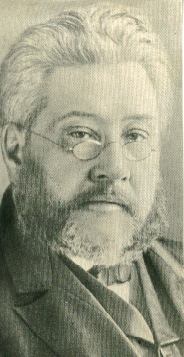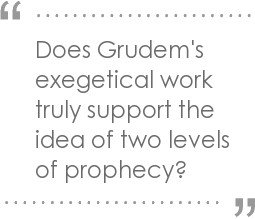A Case for Cessationism

With all of this as a backdrop (see part 1 in this series), the question is reduced to this: Is God giving authoritative revelation on par with that which He has given in the past, much of which has been inscripturated, or is He not? If He is, then the church of Christ needs to take note and come into compliance with the modern prophecy movement, following its revelations as it would Scripture. But if the Lord is not revealing His inspired word today, then we need to reject the claims of the modern prophets and expose these supposed revelations for what they are. This means the position taken by most on prophecy—cautious but open—is untenable. The cautious but open crowd is skeptical of the claims coming from the prophetic movement and they are suspicious of the many “words from God” that so many evangelicals are claiming. Still they hesitate to embrace cessationism. They are concerned about limiting God or, as it was mentioned above, “putting God in a box.” To this let me make two replies:
- It is okay to put God in a box if God, in fact, is the One who put Himself in that box. In other words, God can do anything He wants to do, but we expect God to do what He says He will do. If God has put Himself in the cessationist box we can embrace and proclaim it.
- Taking the open but cautious view really does not hold up. Either God is speaking today apart from His Word or He is not. If He is speaking, how do we determine which of the multitude of messages people claim are from Him and which are bogus? If, with Grudem, we have eliminated the tests of Deuteronomy 13 and 18, how are we to evaluate all these revelations? How do we know to whom we should listen and whom we should ignore?
 From
From 
 Where do you stand on the gift of tongues? Many committed Christians believe one of two views, cessationism or continuationism. Others aren’t exactly sure what to believe about this oft-debated gift. Is there a way to bring the two views together while at the same time explaining New Testament tongues simply and convincingly? I believe there is, and to get there all we need is take a fresh look at the gift as described in 1 Corinthians 14.
Where do you stand on the gift of tongues? Many committed Christians believe one of two views, cessationism or continuationism. Others aren’t exactly sure what to believe about this oft-debated gift. Is there a way to bring the two views together while at the same time explaining New Testament tongues simply and convincingly? I believe there is, and to get there all we need is take a fresh look at the gift as described in 1 Corinthians 14. Did all the miraculous gifts of the Spirit, such as tongues and prophecy, cease with the completion of the New Testament? If we take the position that prophecy continues in some form, is such a view compatible with the conviction that God has given us all the authoritative revelation He intended to give (that the the canon of Scripture is closed)?
Did all the miraculous gifts of the Spirit, such as tongues and prophecy, cease with the completion of the New Testament? If we take the position that prophecy continues in some form, is such a view compatible with the conviction that God has given us all the authoritative revelation He intended to give (that the the canon of Scripture is closed)? Originally published as a single article: “Tongues—Are They for Today?,”
Originally published as a single article: “Tongues—Are They for Today?,” 
Discussion